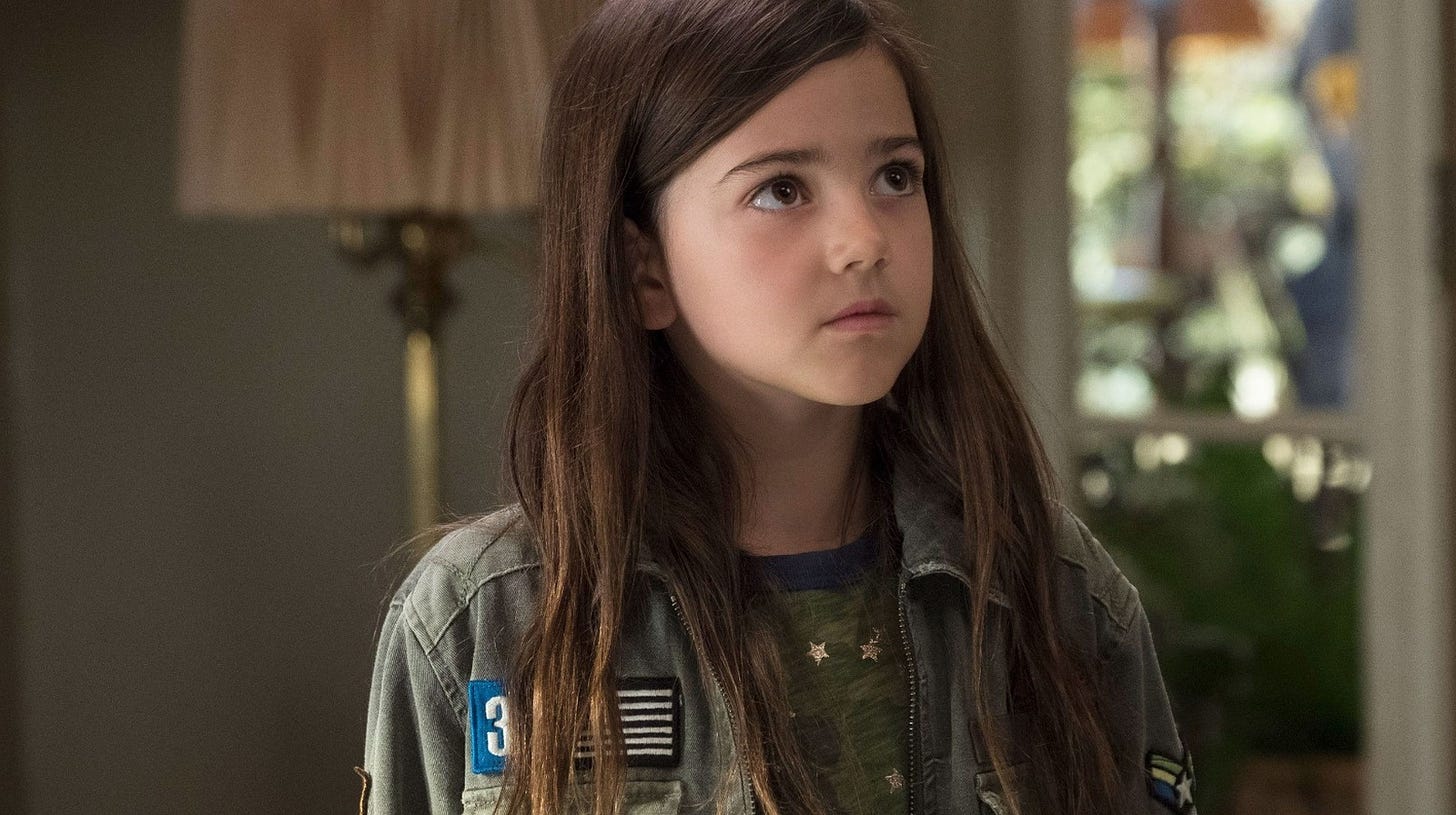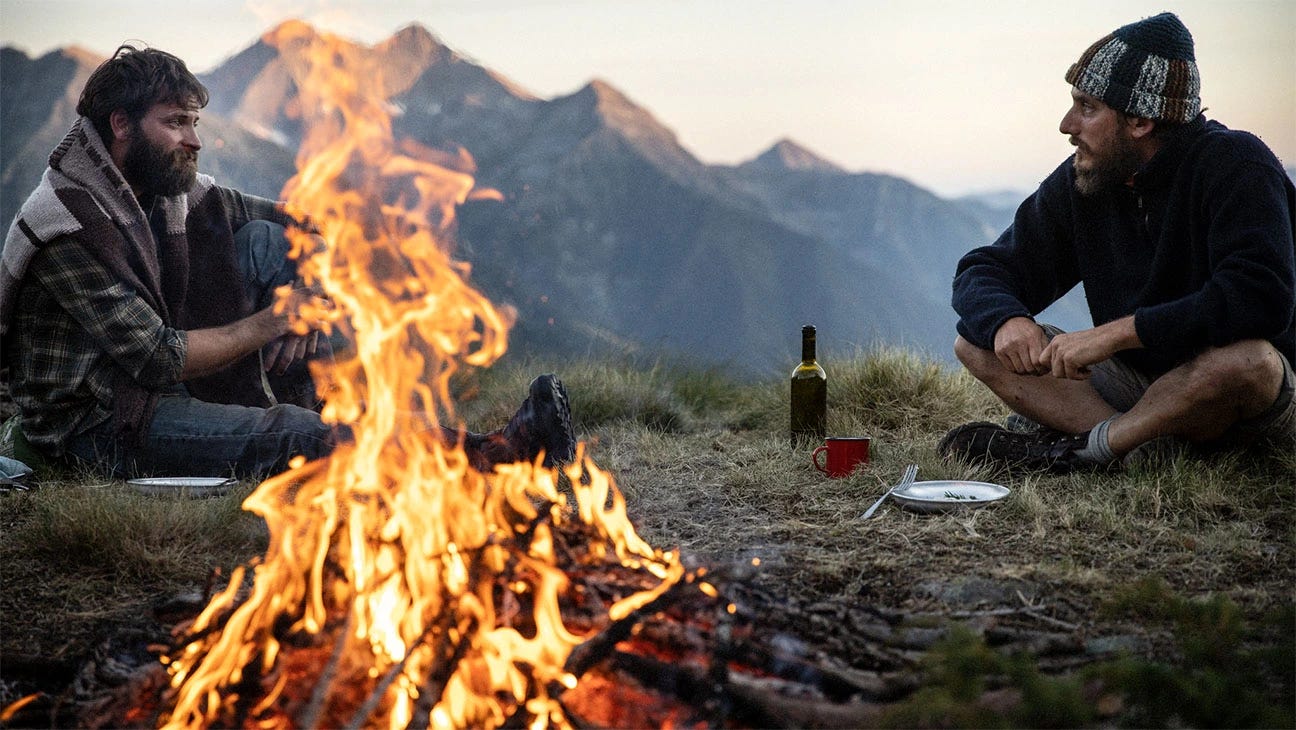In Review: 'Are You There God? It's Me, Margaret,' 'The Eight Mountains'
This week, a sixth-grade girl comes of age awkwardly in a lovely adaptation of a Judy Blume classic and two boys who meet in the Italian Alps grow up and apart (and together) again.
Are You There, God? It’s Me, Margaret
Dir. Kelly Fremon Craig
106 min.
As a prodigious young bookworm in the late ’70s and early ’80s, I couldn’t get enough of Judy Blume’s “Fudge” series, which started with Tales of a Fourth Grade Nothing and continued with Superfudge (my favorite), Fudge-a-Mania, and Double Fudge. And so, naturally, I sought out other Blume books like Blubber, her more serious children’s novel about a girl who’s ostracized and bullied over her weight. But there was one Blume book on the elementary school shelf, Are You There, God? It’s Me, Margaret, that felt off limits and scandalized, not unlike the many times as a teenager I failed to work up the nerve to check out Henry Miller. I didn’t know anything specific about it, other than it being about girl things that were terrifying and none of my business.
Enough of the book came back to me watching Kelly Fremon Craig’s wonderful adaptation that I must have secreted away with it at some point, but the first emotion of many the film evokes is relief. Finally, we can talk about this stuff. Finally, we can get a window into this awkward transitional stage that all girls face, often clouded by shame and ignorance, and sometimes only whispered about with their mothers behind closed doors. On screen, Are You There, God? It’s Me, Margaret has moments of crawl-under-the-table embarrassment, as we witness a flat-chested sixth grader get measured for a bra at a department store or buy her first box of tampons from the world's slowest, most disaffected teenage clerk. Yet the overall feeling is liberated and sweet, as if book and film are slaying some cultural monster just by saying its name.
As with her previous film, the superb Edge of Seventeen, Craig handles a difficult coming-of-age phase with great insight, humor and attention to detail, centered on a heroine whose acute sense of outsidership only enhances her relatability. Beautifully played by Abby Ryder Fortson (recognizable from the first two Ant-Man movies), Margaret comes home from a great time at summer camp to alarming news: Her father Herb (Benny Safdie) has a new job and they’re moving from New York City to the New Jersey suburbs, where they’ll have a house and a yard, and her mother Barbara (Rachel McAdams) can be a full-time homemaker. Margaret’s beloved grandmother (Kathy Bates) on her dad’s side takes it hard. Jersey may as well be Walla Walla.
The year is 1970, which makes Barbara’s transition a compelling cultural flashpoint all its own, but Craig stays close to Margaret as she tries to make friends, including her neighbor Nancy (Elle Graham), a like-aged girl who’s much more eager to grow up. When Nancy inducts Margaret into a “club” with two other girls, the talk generally buzzes around boys and their own development, with menstruation as a coveted prize— tangible proof of a step into womanhood. (But don’t make it too soon! A tall girl in class who’s been “developed” since fourth grade is subject to rumors and ridicule.) At the same time, Margaret tries to grapple with issues of faith. Neither her Jewish father nor her mother, who was raised Christian, attend services, so they’ve left her to figure out her own spiritual path.
These two hot-button issues, pubescence and religion, wouldn’t seem to cross over naturally, but the title says it all: Margaret finds herself searching for guidance and knowledge—and, honestly, a little help from above—and so it’s the right time for her to experiment a little. Are You There God? evokes her mix of curiosity and terror exquisitely, as she’s simultaneously tormented by the trials of growing up and anxious to see what it’s like. The film pivots on her relationship to her mother, who’s caught up in her own questions of how suburban life suits her and how best to reconcile her own needs and her daughter’s.
Though rife with period detail, in multiple senses of the term, Are You There God? is refreshing foremost as a timeless, universal story of girlhood. It is not that forbidden fruit hanging from the elementary school bookshelf, but an utterly approachable and healthy entertainment that feels great for making the ordinary seem less alien. We like to avoid uncomfortable conversations, but the trick of Are You There God?, book and film, is that they can be quite a bit more comfortable than we assume. That’s the Judy Blume touch. And that’s the Kelly Fremon Craig touch, too. — Scott Tobias
Are You There God? It’s Me, Margaret? opens in theaters everywhere tomorrow.
The Eight Mountains
Dir. Felix van Groeningen and Charlotte Vandermeersch
147 min.
The Eight Mountains keeps going past the point other movies might be content to stop. Opening in the early 1980s, it begins as a contrast between the lives of two boys in the Italian Alps. Pietro (played as a child by Andrea Palma) is just visiting, spending the summer with his family as they put some distance between themselves and their home in bustling Turin. Bruno (played as a child by Cristiano Sassella) is a local, the offspring of a family that’s long lived in the mountains, though his absent father has abandoned the old ways for a job working construction. The boys become inseparable and, as summer comes to an end, Pietro’s father (Filippo Timi) and mother (Elena Lietti) offer to bring Bruno back with them, where the obviously bright kid can get an education.
Bruno’s choice, and what follows, is a story unto itself, complete with a bittersweet conclusion. But co-directors Felix van Groeningen and Charlotte Vandermeersch (longtime collaborators whose past work includes The Broken Circle Breakdown, credited here as a directing team for the first time) are more interested in the broader landscape of time, following Pietro and Bruno through subsequent chapters of their lives that have obvious beginnings and endings but bleed into one another. Adapting a novel by Italian author Paolo Cognetti, The Eight Mountains is interested in landscapes in other ways, too. Stunningly photographed, it offers images of the Alps that go beyond the postcards, depicting the region of Bruno’s birth as a vibrant, dangerous, rewarding place with a culture all its own, albeit one in danger of fading away.
When they meet again as adults, it’s clear that Bruno (now played by Alessandro Borghi) has known this all his life but it’s something the restless Pietro (played as an adult by Luca Marinelli) has to learn. Nominally an aspiring writer, in reality a restaurant worker, Pietro returns to the vacation spot of his youth after the death of his father, from whom he’s grown estranged (but who remained close to Bruno). Reuniting with Bruno, the two agree to fulfill his father’s final wish of building a mountainside. During the process, the two come to understand each other better as Pietro tries to come to peace with his never-repaired paternal bond.
Again, there’s enough material for a whole movie in that set-up, but The Eight Mountains is less interested in tidy resolutions and neat narrative arcs than how one story piles on top of another to make a life. Pietro and Bruno follow different paths they hope will bring them happiness and peace, and as their paths diverge and come together (and diverge and come together again), it becomes clear how much they share yet how little they have in common. The film becomes an intimate sort of epic in which the lives of the two men are never dwarfed by the grandeur of their surroundings. Instead, they seem as much a part of the place they share, and that’s come to define them, as the grass and the trees. —Keith Phipps









As a PSA: the documentary JUDY BLUME FOREVER on Prime Video is very much worth your time. Not groundbreaking stylistically, but Blume is warm, open, unapologetic, and really funny in the interview sequences. And it's moving in ways I had not expected, particularly in the sections dealing with the letters of the kids who wrote to Blume over the years, which gave a sense of the tremendous influence she's had on generations. (She also struck up long, ongoing correspondences with some of them.)
I wish I could say I could no longer relate to the feeling you describe of Margaret being "off-limits", but nope, I asked my sister if she'd go with me so I wasn't a weird guy in the back by myself.
34 and still working on it!